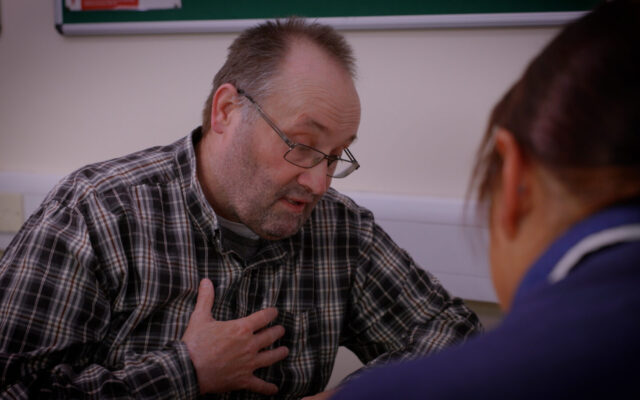Year after year, research has shown that people with learning disabilities are dying 15-20 years younger than others, with twice as many dying for reasons that could have been avoided.
Over the past 10 years, more research and health service attention has been drawn to people with several long-lasting health problems (such as diabetes) – in medical jargon, multimorbidity.
For most, long-term conditions tend to start in middle age, and having more than one of them can be a problem in all sorts of ways.
First, having one (for example, high blood pressure) can increase your chances of developing another (such as a stroke).
Second, the medications you need for different conditions might not work well if taken together.
Third, because specialist doctors focus on a particular condition, they don’t see the entire picture and help you work out what’s best for your health as a whole.
Finally, managing appointments and medications for many health conditions can be difficult, confusing and time-consuming.
A small but growing body of research has looked at multiple health conditions in people with learning disabilities, mainly using information from health records.
Adults with learning disabilities are far more likely to report two or more health conditions than others (41% versus 26% of people in one study in Scotland); they develop them around 20 years earlier.
Around 40%-50% of adults with learning disabilities are prescribed five or more medications, again starting at younger ages. Combinations of these drugs are of clinical significance: they commonly have to be avoided, their effects monitored and dosages adjusted.
There is a link between people with learning disabilities having more health conditions and dying earlier. Some conditions are more common among this group, such as epilepsy (16.6% compared to 0.6%).
Much more medication
In addition, some medications are much more likely to be prescribed for people with learning disabilities such as antipsychotics (14.4% compared with 0.9% of others).
Yet people with learning disabilities are invisible in both general medical research on multimorbidity and National Institute for Health and Care Excellence (NICE) guidelines on managing multiple conditions.
Why are they invisible?
Because they count learning disability itself as a long-term health condition.
This fundamental error – a learning disability is not remotely a health issue in itself – is deeply unhelpful.
Adults with learning disabilities are far more likely to report two or more health conditions than others and develop them around 20 years earlier
It points practitioners to see a learning disability as a health problem, with all the potential for discrimination that comes with that. And it makes people’s distinctive profile and health needs invisible too – learning disability is seen as one condition among many.
This doesn’t motivate health services to look out for and help people with learning disabilities with multiple health problems, or even (imagine!) think about the social and economic reasons why they are more likely to experience such issues at much earlier ages.
Instead, NICE and services are looking in the wrong places to find people with learning disabilities, focusing on older people, not thinking about the reasonable adjustments to offer personalised approach, nor about the combinations of health issues that are common among this group.
Anyone listening?
The latest NHS-funded Learning Disability Mortality Review (LeDeR) report, which came out in December, says helping people with learning disabilities with multiple health conditions is one of its most important issues for health services. Is anyone in the multimorbidity medical world listening?
The last word goes to Tim Sully, a member of the Involvement Matters Team at the East Sussex Learning Disability Partnership Board. He contributed to the the latest LeDeR report foreword, written by the Staying Alive and Well Group (a group of people with a learning disability based at Kingston University).He says: “It makes me angry knowing I will have to suffer, even if it is not necessary, because someone is not thinking clearly about me.”





